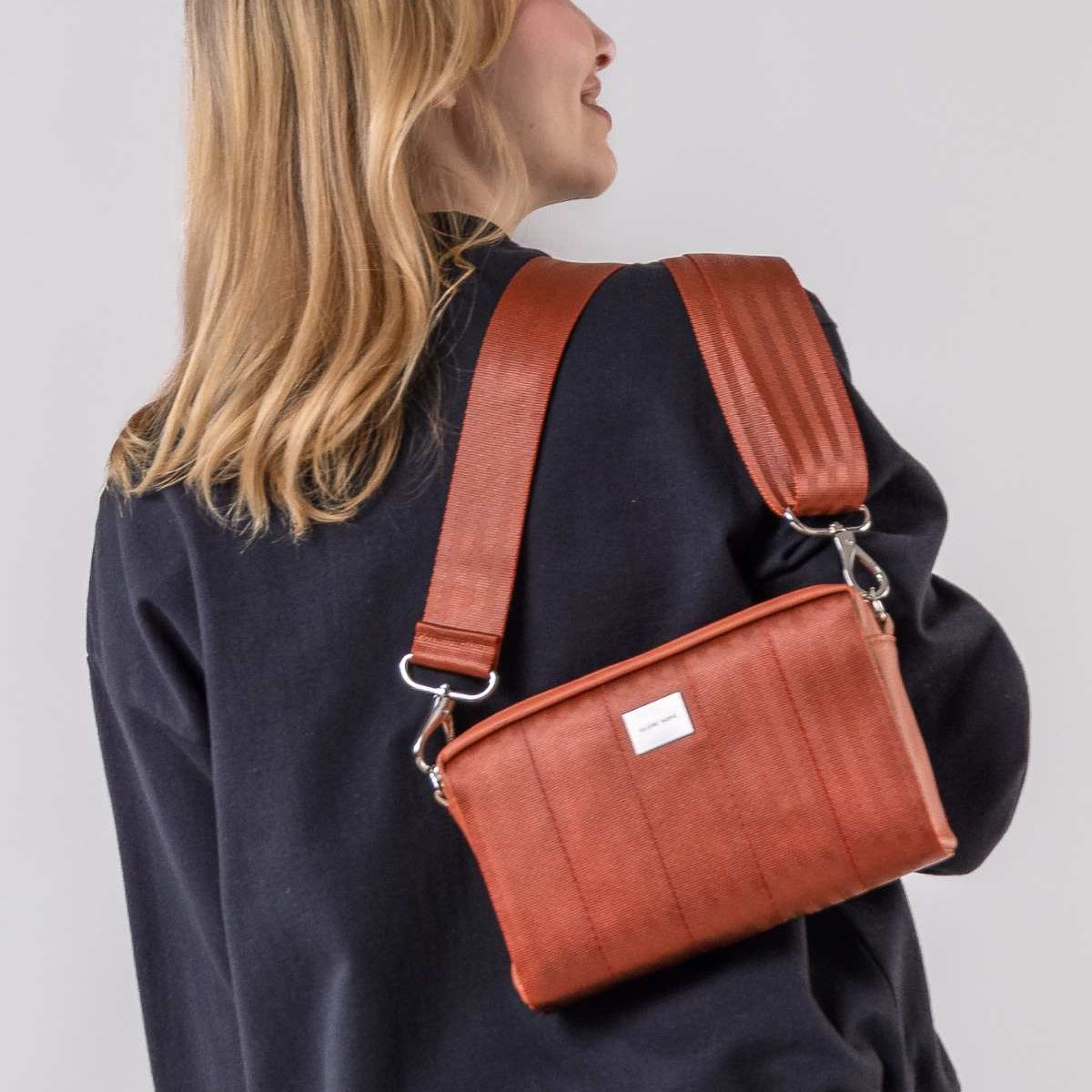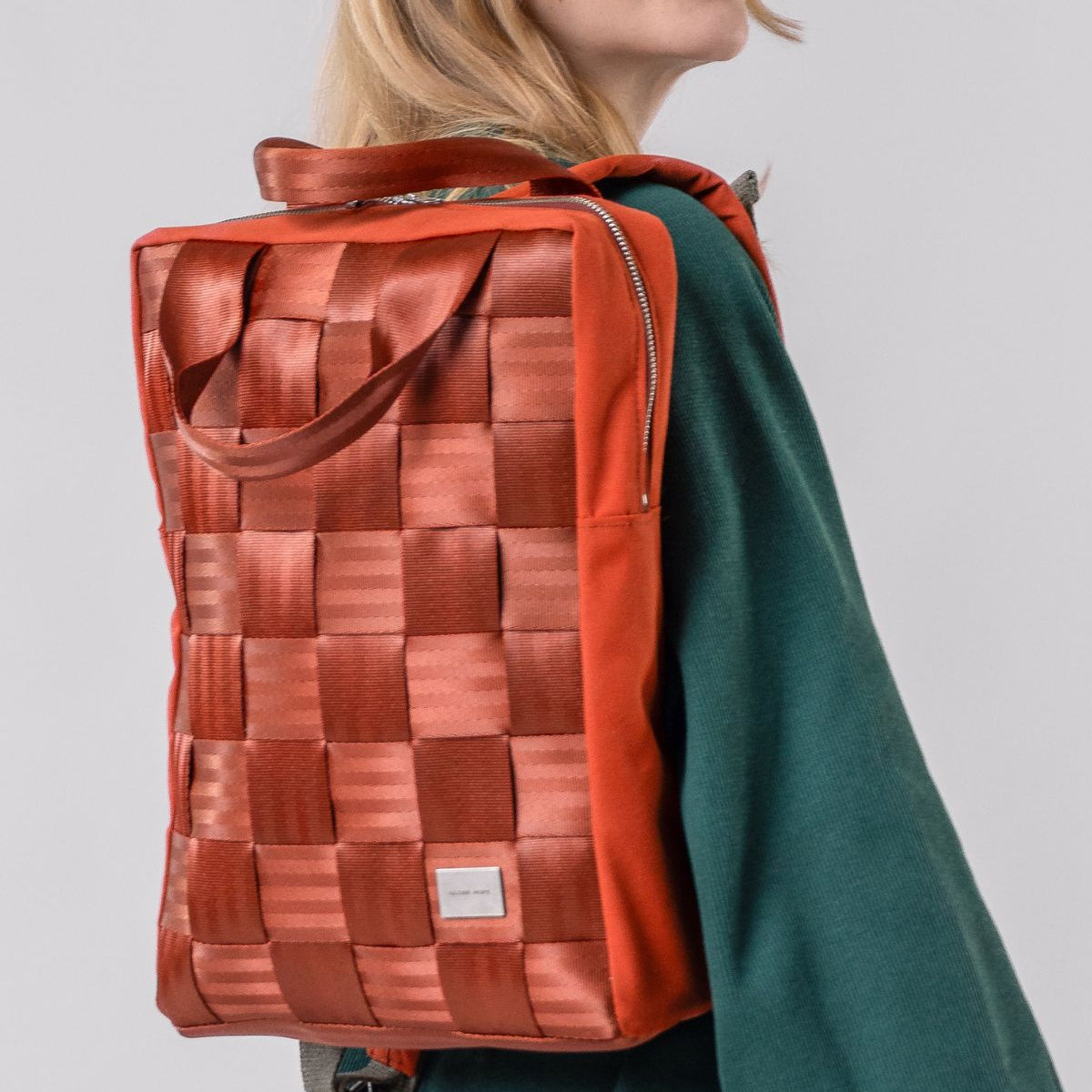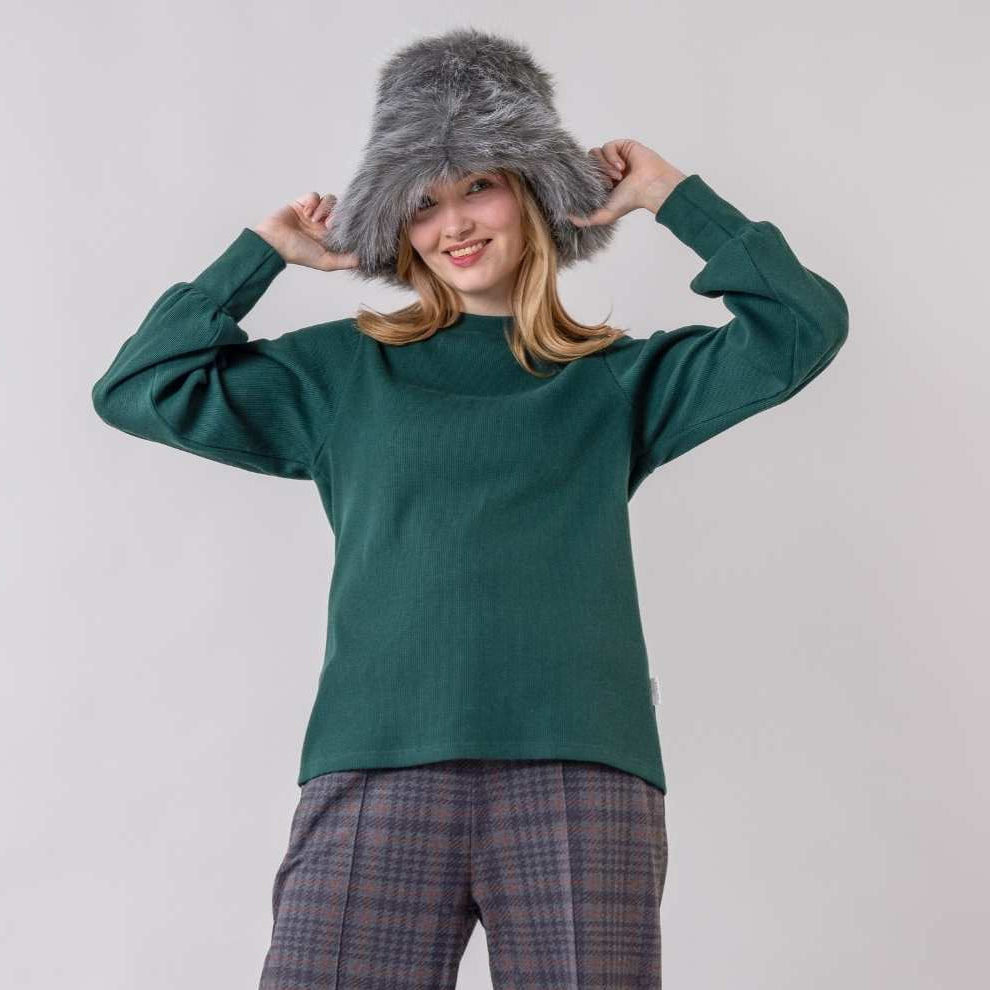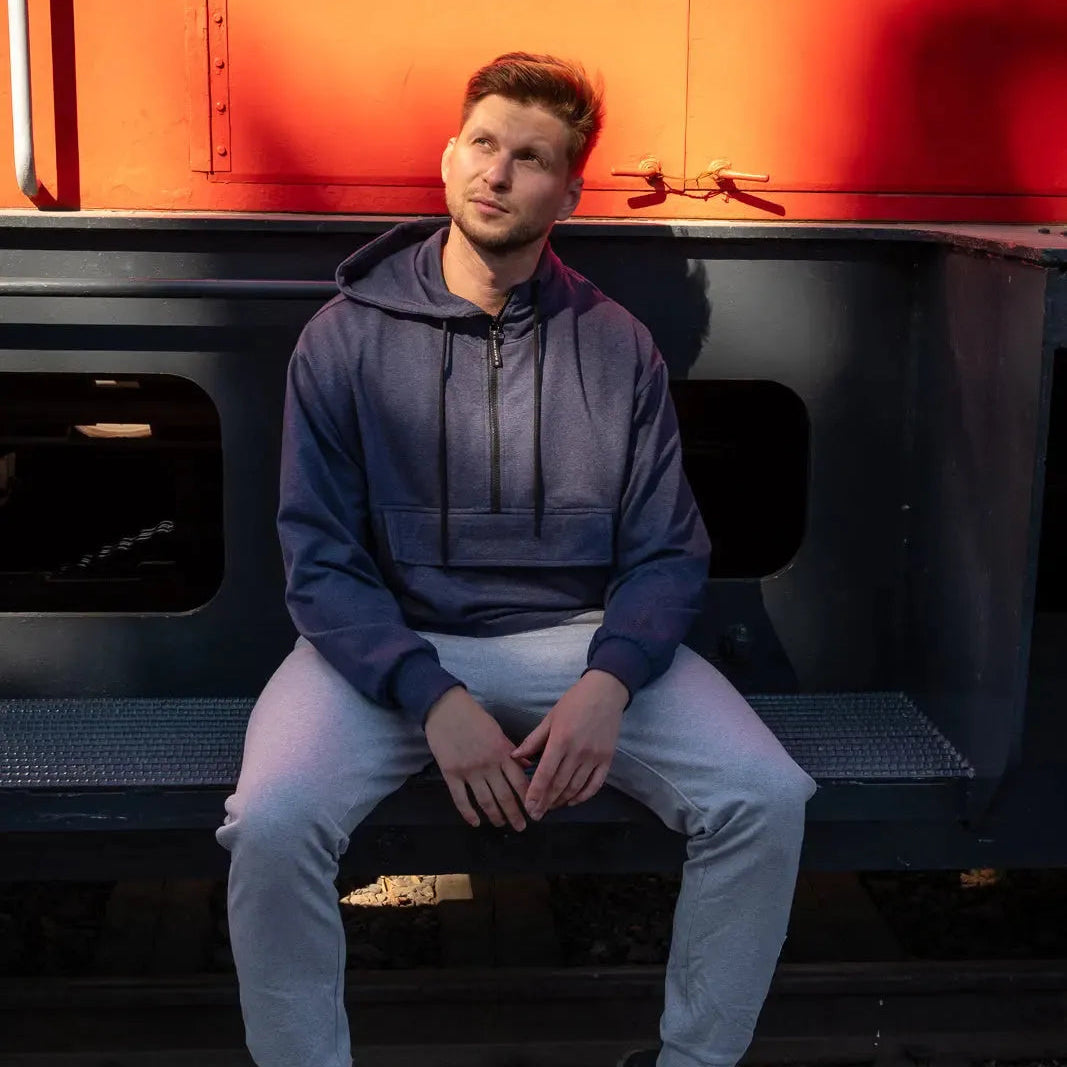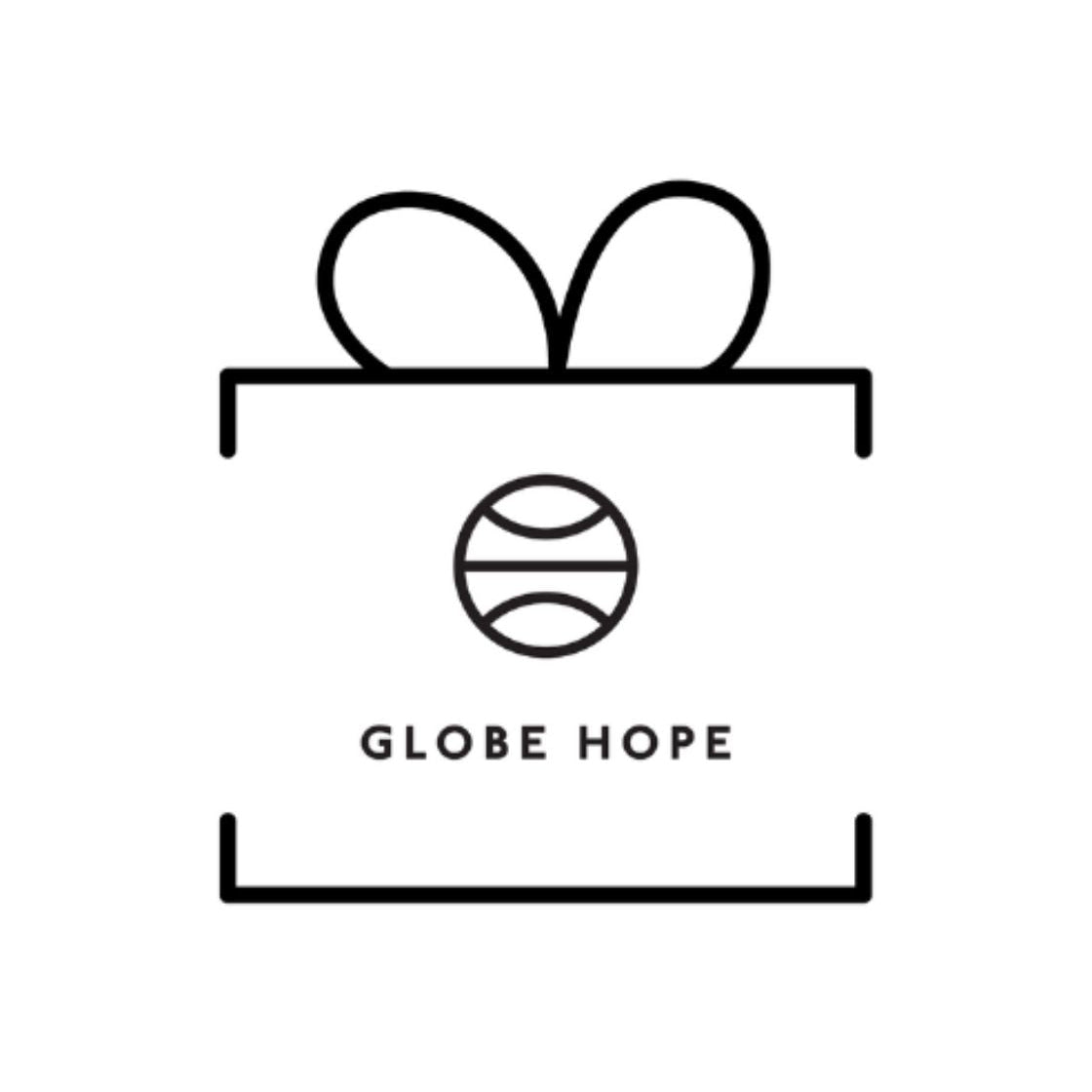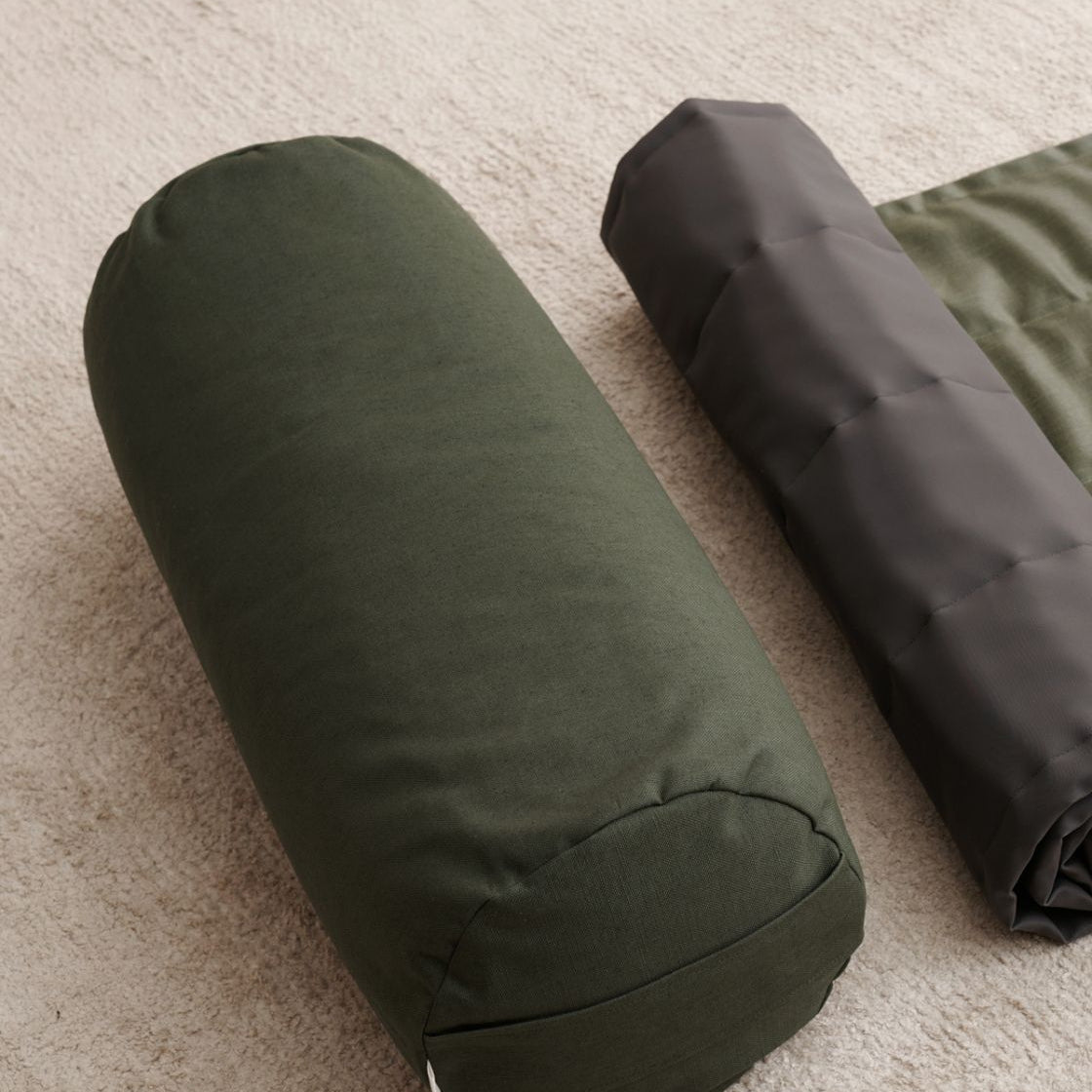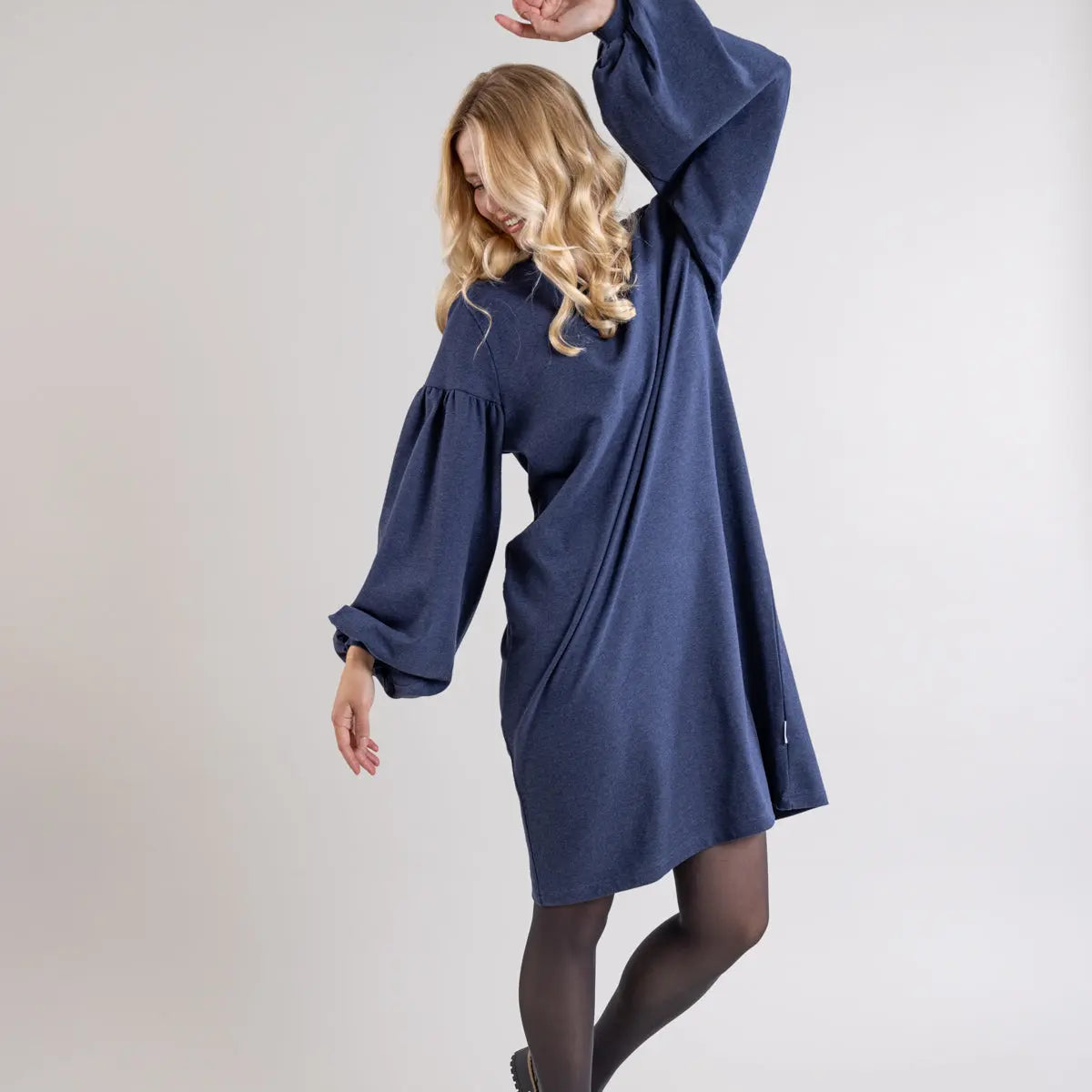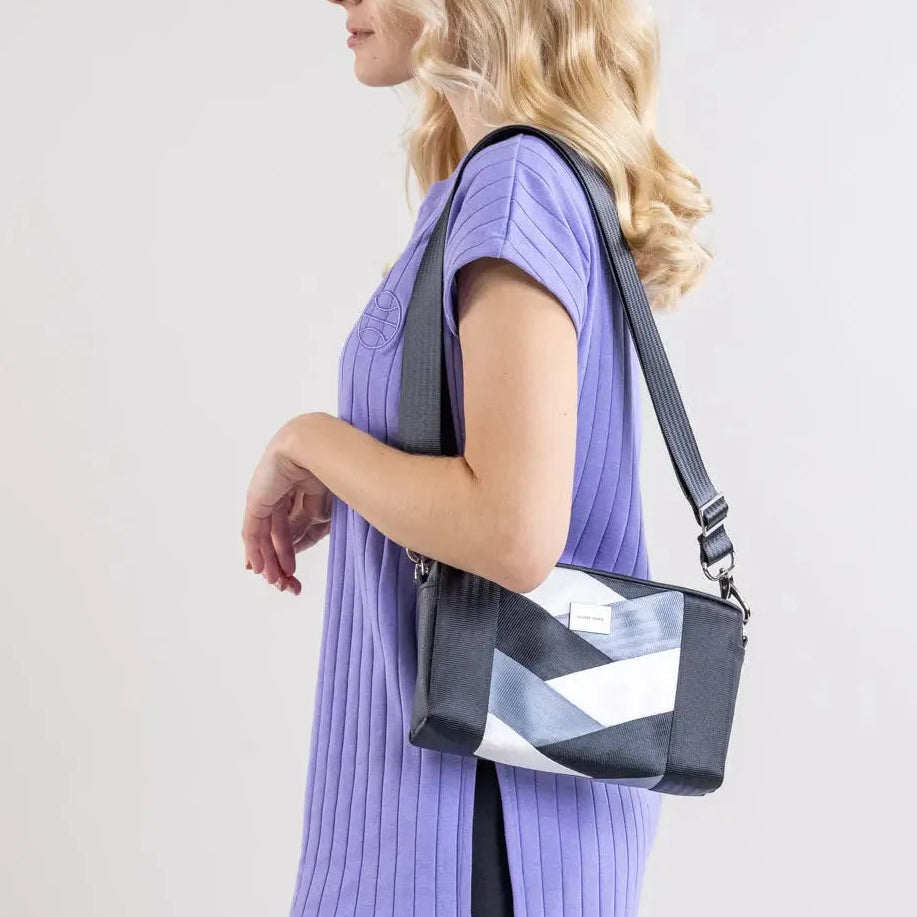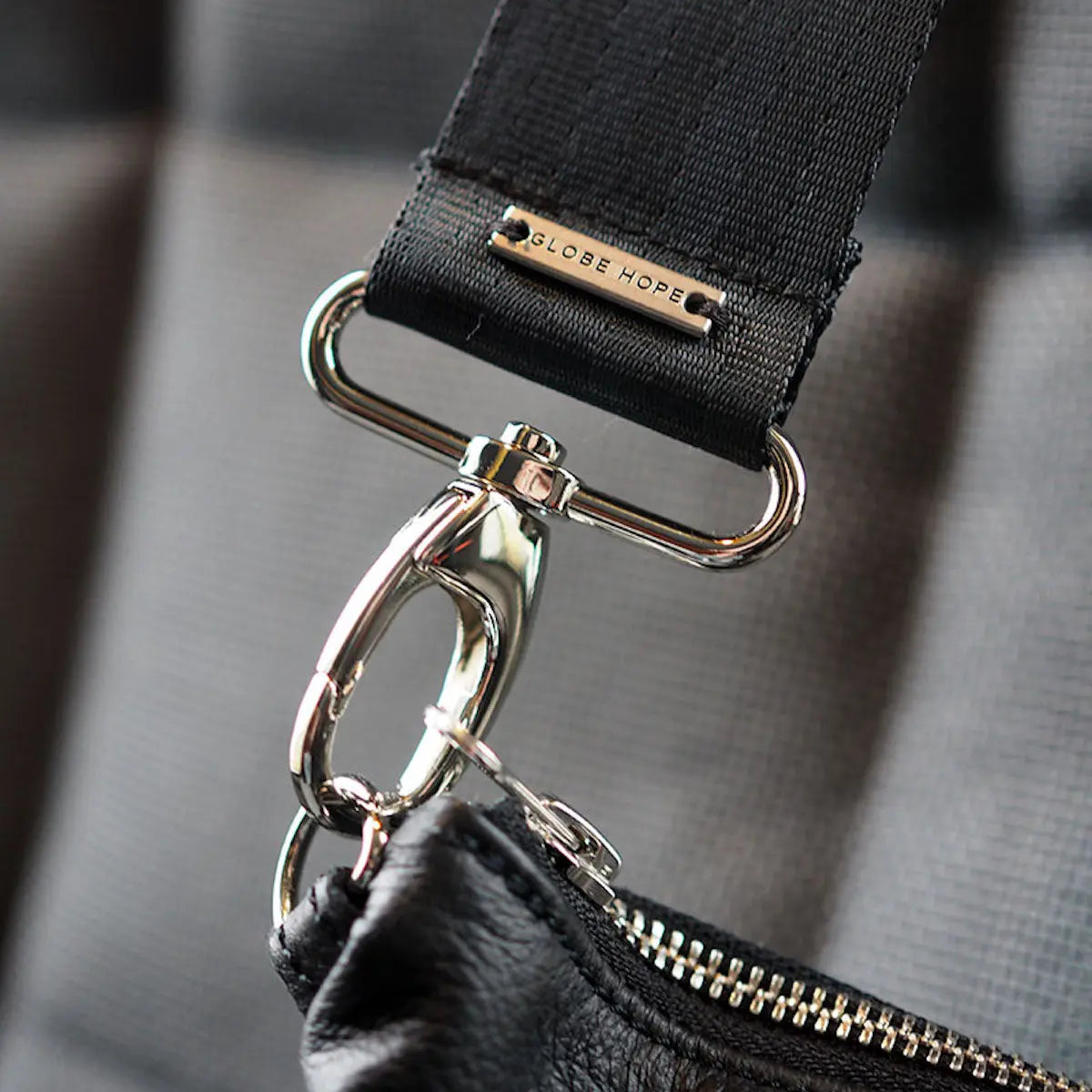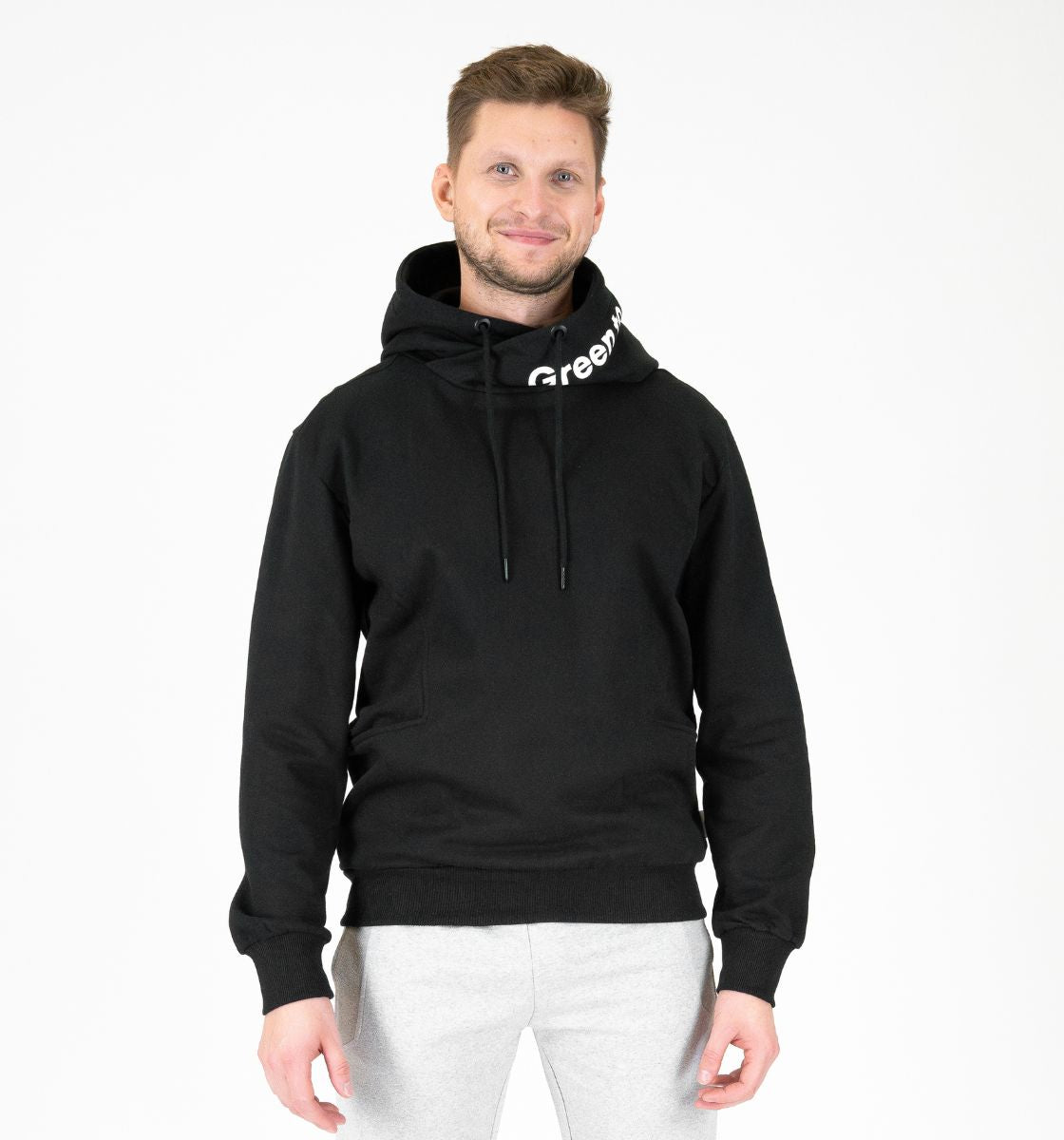
The textile production process
Globe Hope's clothing collection offers nothing new. It is made from recycled materials.
Globe Hope's clothing collection is made from recycled yarn. In collaboration with long-standing professionals in the circular economy, we guarantee a transparent and controlled production process from start to finish.
What is the basis for the sustainability of the collection?
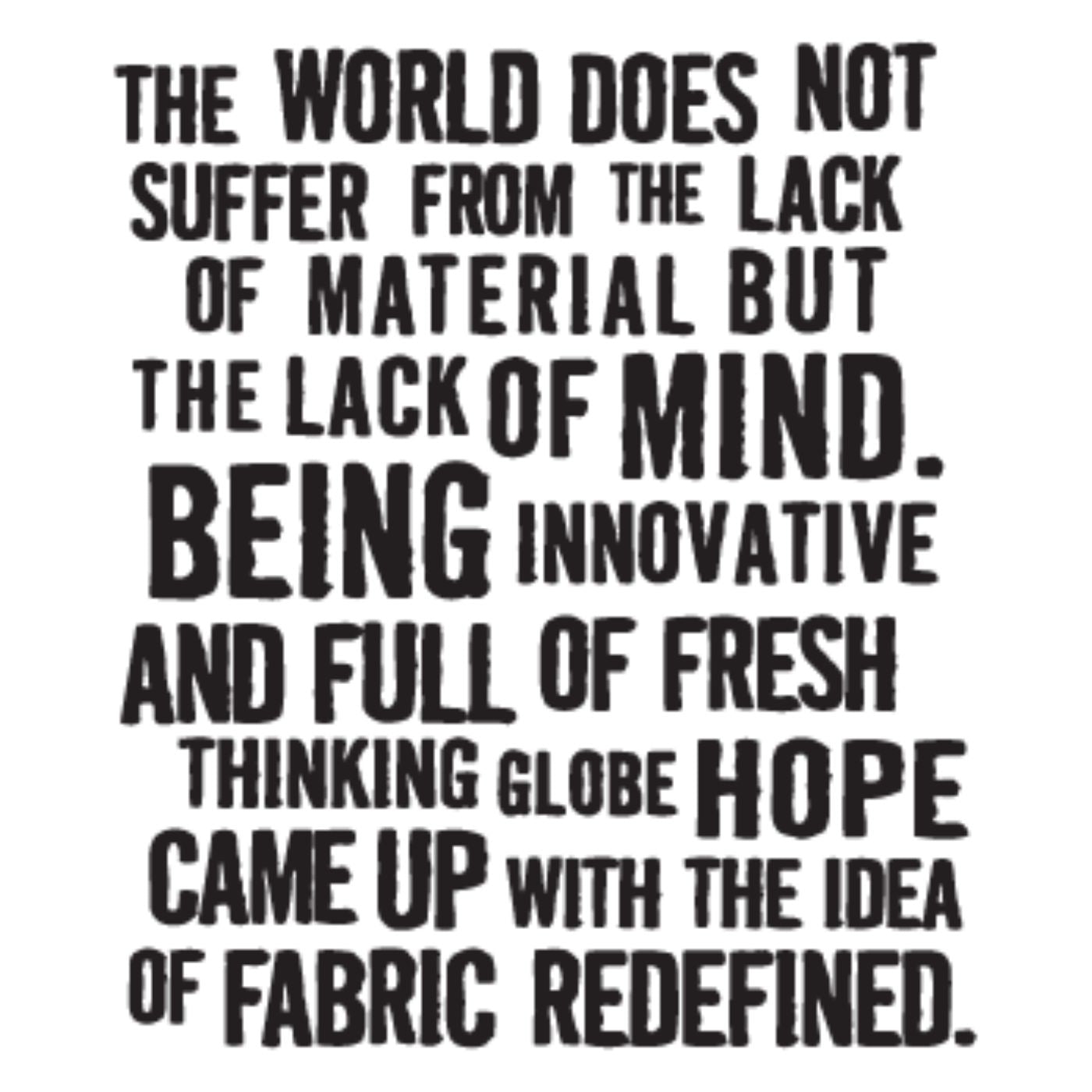
Mission
As the Globe Hope philosophy demands, we use only existing, discarded materials in our textiles. Globe Hope's responsibility is global, and we believe that out of small streams come bigger streams. With our clothing collection, we can offer a responsible alternative to more and more consumers.
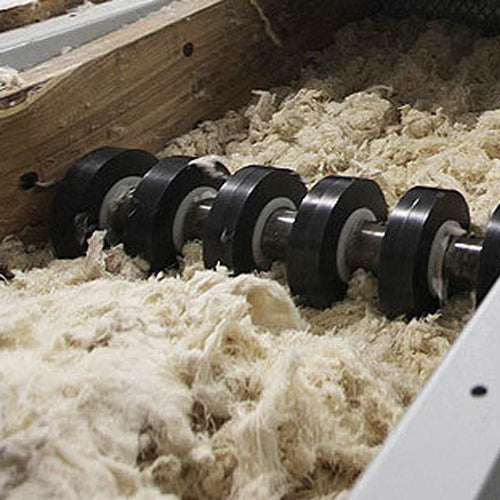
Materials from
The durable and comfortable fabric is made from approximately 60% recycled cotton and 40% recycled polyester. The cotton we use is made up of waste from the textile industry. The polyester we use is made from recycled bottles and other plastic waste.
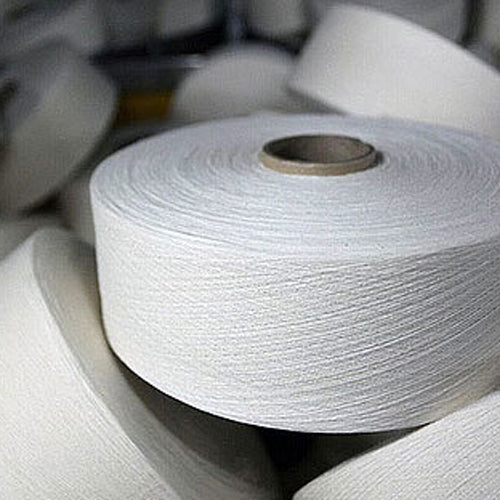
Recycled wire
The fabrics are woven from recycled yarn. The yarn is manufactured in India, under an innovative and controlled process.
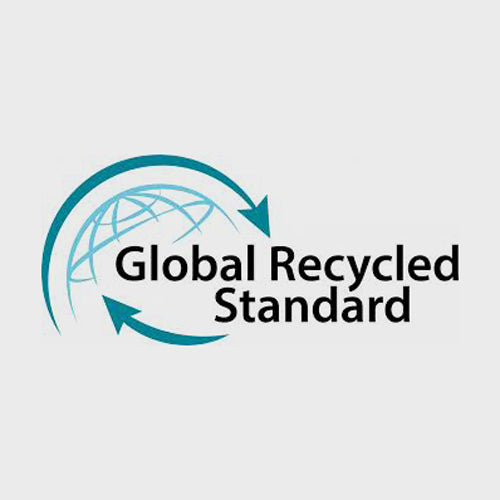
Certified production process
Our entire import process in India is GRS certified. The "Global Recycled Standard" certification ensures the origin of recycled materials and closely monitors the material flow from start to finish. The certification also ensures socially and environmentally friendly conditions, as well as the use of safe chemicals.
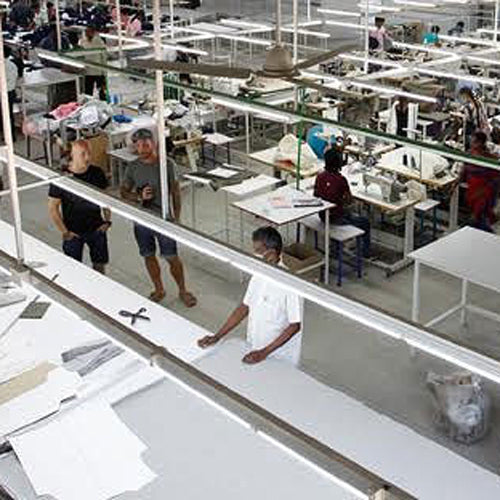
Partners
The garment production process takes place in collaboration with our trusted partners. We closely monitor the process from the yarn to the importation of the garments.
Production pictures © Pure Waste Textiles
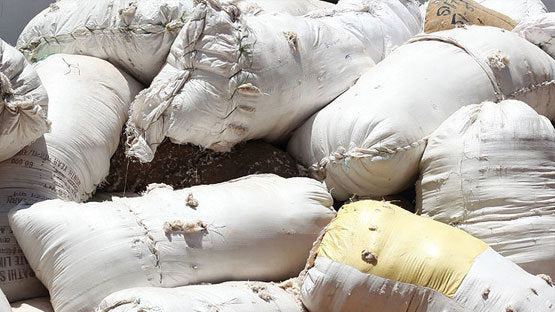
The global textile industry as a whole generates 3 million tonnes of trimmings per year.
That waste would be enough material to make three T-shirts for everyone in the world. Now up to 15% of the fabric is wasted in the garment manufacturing process.
Want to know more?
GlobeHope garments are manufactured in Tirupur, India at the Thai Export factory under the supervision of Basic-Fashion Oy. The factory has a 30-year history of cooperation in garment production. As India is the largest cotton producing country, it also produces the most cotton waste. Therefore, it is natural that our production based on recycled quality is as close as possible to the raw material and its producers in Tirupur.
Our products are GRS certified. This certification enables the traceability of the product and its materials back to the source and verifies the parties involved in its manufacture. In order for a product to be GRS certified, all parties must be audited and certified by Textile Exchange. TCs, or Transaction Certificate documents, are a tool for transparency. Each stage of production is documented and the proof of use of certified material is passed on to the next party. This enables all production stages of certified material to be traced backwards.
A GRS certified product is identified by a logo with the certification number of the company responsible for the product.
Globe Hope's concern and responsibility is global and cannot be limited to Finland or Europe. Little by little, a bigger stream is being created from small streams and by being part of a wider partnership, Globe Hope can offer thoughtful solutions to more and more consumers.
Our clothing range is made from innovative recycled yarn. The yarn is produced from cotton cuttings and plastic bottles collected in India. The sources of the recycled raw materials are specifically identified and named, meaning that any surplus and bottles are not accepted in the process.
Recycled cotton yarn is an innovation compared to normal cotton farming. Surplus cotton and cuttings would otherwise end up in incineration or landfill. Instead, the process we use sorts them by colour, tears them back into fibre and combines them with recycled polyester. This makes the recycled yarn as sustainable as possible. In addition to reducing waste, an essential environmental benefit of recycled yarn comes from water savings. Compared to growing new cotton, one t-shirt made from recycled yarn saves 2700 litres of water!
Thai Exports is a family-owned company with a strong certification base (SA8000, GOTS and GRS) and expertise in international production. The working conditions in the factory are good and the factory owner is very committed to production, staff and to developing the whole recycling concept with us. The factory currently employs around 50 people.
The factory has sewing, inspection and packaging lines. Knitting, dyeing and printing are done by GRS certified and designated partners. Thai Exports has been innovating and implementing water recycling and purification for the dyeing mill and the use of solar energy for production for a decade.
Not used. Globe Hope's partner factories have international certifications (e.g. BSCI) that cover numerous requirements related to social responsibility and child labour is one of the most controlled factors in these countries.
Working hours in the factories are 8.30-17.30, including a one-hour lunch break and two 15-minute breaks. Work takes place six days a week, from Monday to Saturday.
Workers are paid in accordance with local legislation, but well above the minimum wage. The basic wage for seamstresses is the same as for security guards, for example.
In addition to local public holidays, the factory's employees have 21 paid days off per year. Parental leave (locally still called maternity leave) is paid and lasts for a minimum of 151 days (6 months).
In the immediate vicinity of the factory, the State Medical University and the hospital are open 24/7.
Regular replacement of the machinery is also an important occupational safety factor to minimise unnecessary accidents in the sewing and knitting mills. Social and ethical responsibility certifications also largely guide the use of work spaces and safe working conditions, from individual work tasks to wider evacuation plans.
For production lines to work, all workers need to be competent. Our factories use a skilled workforce that is trained as necessary to meet new products, working methods or machinery.
GRS certification also requires that environmental issues are taken into account. The process mainly generates waste water from washing or dyeing the material, which is treated in the factory's own water treatment plant. The environmental impact of sewing products is very low.
Our plant uses the national grid and our own solar energy for production.
Our entire production process isGRS(Global Recycle Standard)certified. This ensures transparency throughout the production chain and allows us to ensure that there are no errors or abuses in the chain. The certification requires and monitors the social and environmental responsibility of the companies it audits, as well as the use of chemicals. The certifying body monitors transparency on a production batch basis.
In addition to the GRS certification, our factories have other social responsibility or environmental certifications such as SA8000 and GOTS (Global Organic Textile Standard).
The code on the product first tells you who the certification is issued by, and the actual code is factory specific. The number indicates the factory that has the know-how and systems to implement the transparent process required for certification. The factory's certificate number makes it possible to trace the production batches of recycled products they supply.
There is not yet a traceability tool available to consumers for the GRS certification scheme, but all operators involved in the process receive a certificate of traceability for each batch of products. The certificate is called Transaction Certificate (TC). Globe Hope makes these batch-specific traceability documents available on its website.
Thai Export does not use chemicals in its production. The GRS certificate, which controls the production process, prohibits the use of harmful chemicals. Where necessary, chemicals are monitored by laboratory tests. Partners such as printing houses comply with the GRS certificate.
Write a clear and concise answer to guide your customers.
In addition to recycled thread, many other supplies are needed, such as sewing thread, labels and hang tags. We currently use quality local suppliers, but as supply increases, we aim to have as many supplies made from recycled materials as possible.
Individual products sold online, for example, are packaged in a single bag made of 100% recycled plastic to protect the product. Larger quantities, for example for retail deliveries, are packed in cardboard boxes where the use of packaging plastic is minimised.
Our partners
Basic-Fashion Oy
Nuijamiestentie 3 A
00400 Helsinki
www.basicfashion.fi
Thai Exports
2/232 Seventhampalayam road
641608 Tiripur, India
SA-8000
GRS certificate
GOTS certificate
Crosswear Industries Ltd
Kathgora, Zirabo, Savar, Dewan Idris Sarak
Dhaka 1341, Bangladesh
GRS certificate
BSCI certificate
GOTS certificate
OCS certificate
OEKO-TEX certificateISO 14001:2015

